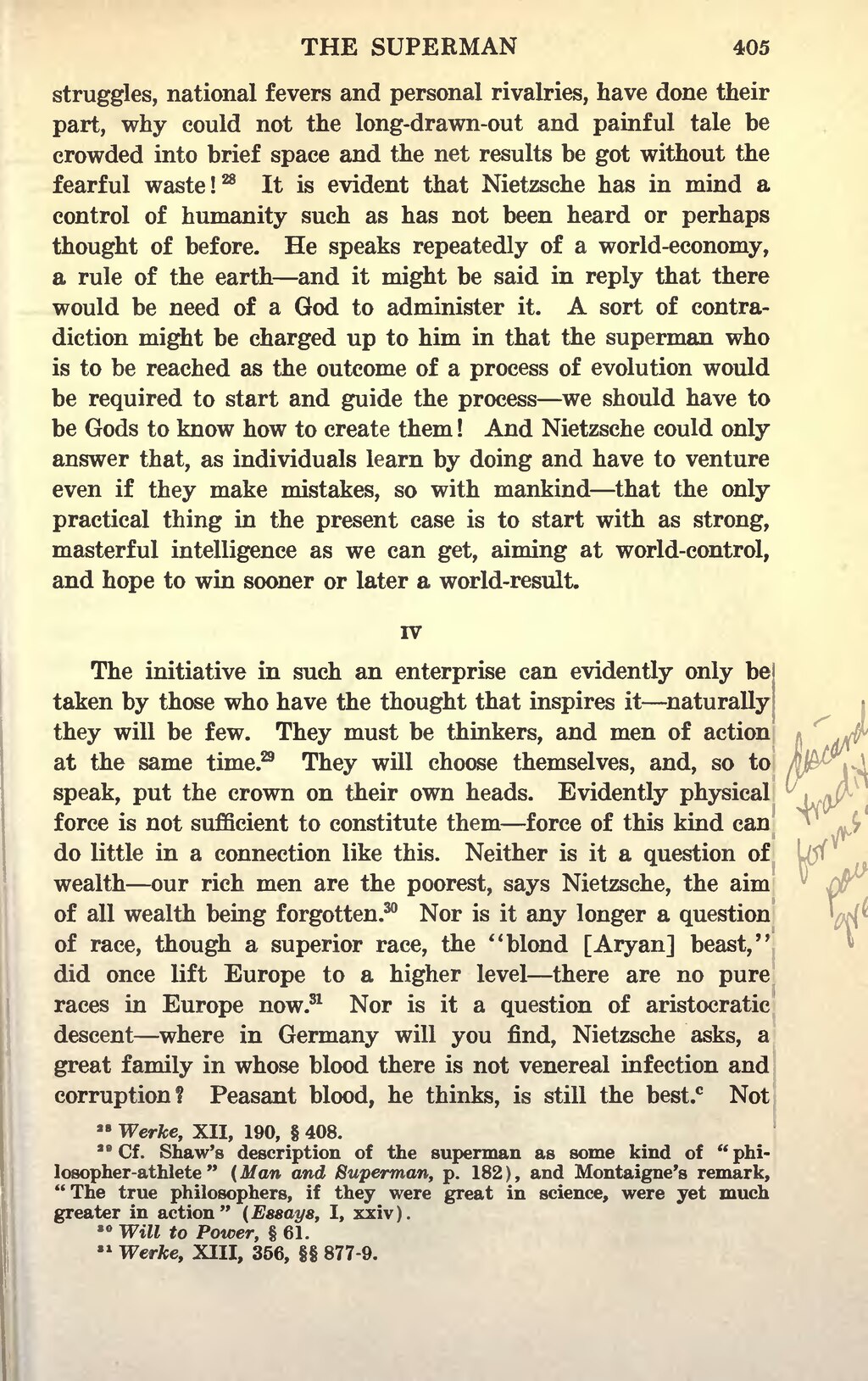struggles, national fevers and personal rivalries, have done their part, why could not the long-drawn-out and painful tale be crowded into brief space and the net results be got without the fearful waste![1] It is evident that Nietzsche has in mind a control of humanity such as has not been heard or perhaps thought of before. He speaks repeatedly of a world-economy, a rule of the earth—and it might be said in reply that there would be need of a God to administer it. A sort of contradiction might be charged up to him in that the superman who is to be reached as the outcome of a process of evolution would be required to start and guide the process—we should have to be Gods to know how to create them! And Nietzsche could only answer that, as individuals learn by doing and have to venture even if they make mistakes, so with mankind—that the only practical thing in the present case is to start with as strong, masterful intelligence as we can get, aiming at world-control, and hope to win sooner or later a world-result.
IV
The initiative in such an enterprise can evidently only be taken by those who have the thought that inspires it—naturally they will be few. They must be thinkers, and men of action at the same time.[2] They will choose themselves, and, so to speak, put the crown on their own heads. Evidently physical force is not sufficient to constitute them—force of this kind can do little in a connection like this. Neither is it a question of wealth—our rich men are the poorest, says Nietzsche, the aim of all wealth being forgotten.[3] Nor is it any longer a question of race, though a superior race, the "blond [Aryan] beast," did once lift Europe to a higher level—there are no pure races in Europe now.[4] Nor is it a question of aristocratic descent—where in Germany will you find, Nietzsche asks, a great family in whose blood there is not venereal infection and corruption? Peasant blood, he thinks, is still the best. c Not
- ↑ Werke, XII, 190, § 408.
- ↑ Cf. Shaw's description of the superman as some kind of "philosopher-athlete" (Man and Superman, p. 182), and Montaigne's remark, "The true philosophers, if they were great in science, were yet much greater in action" (Essays, I, xxiv).
- ↑ Will to Power, § 61.
- ↑ Werke, XIII, 356, §§ 877-9.
